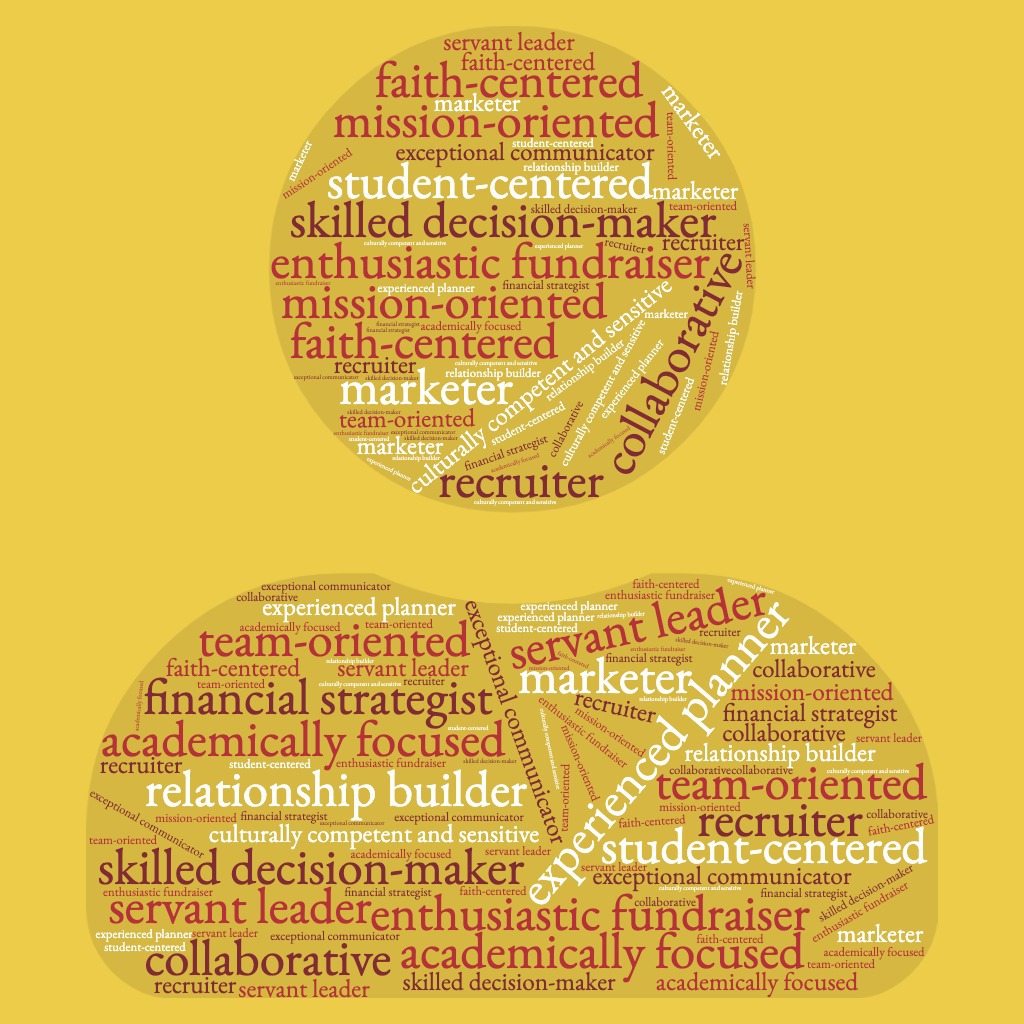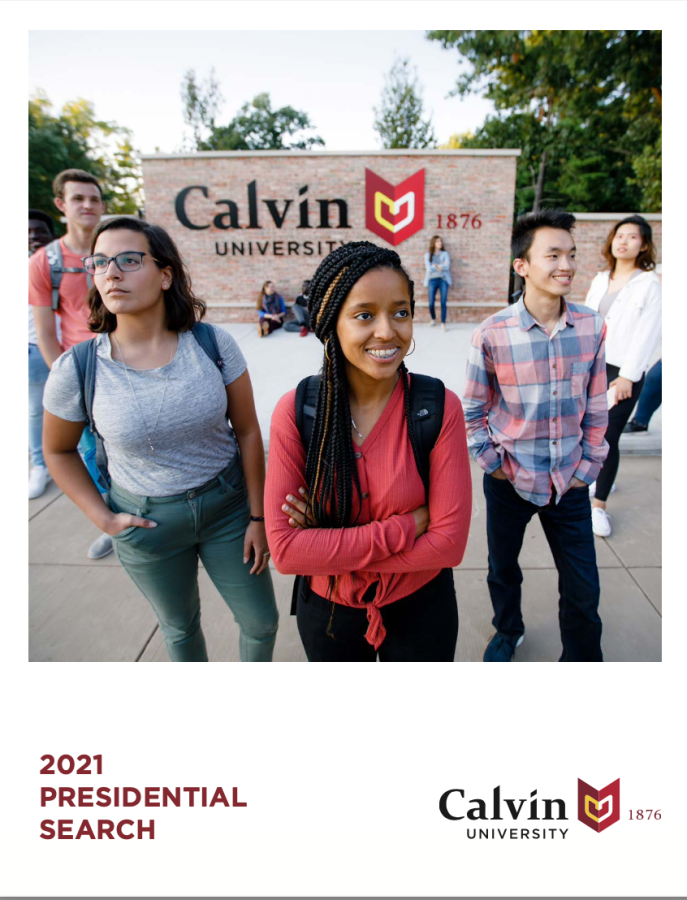Enrollment, Synod 2022 and morale top agenda items in new presidential position profile
] Photo courtesy Calvin University
The PSC released a position profile for the next president on Oct. 15.
The Presidential Search Committee is looking for someone with the skills necessary to guide Calvin through a tumultuous period of its history: someone who values a balance between tradition and innovation, skillful risk management, a mixture of realism and optimism, and a commitment to Calvin’s mission.
This goal is explicated in the position profile released Oct. 15. The 17-page document details the desired traits of the next president, as well as the agenda (what the new president will be facing when they arrive) and a dive into Calvin culture designed for potential candidates. The profile developed for the new president is based on the feedback generated from the community in surveys and listening sessions over the past few months.
“Constituents demonstrated great commitment and passion for Calvin’s mission and future,” PSC Chair Mary Tuuk Kuras told Chimes. “As you can expect, the committee’s greatest challenge was distilling the feedback into manageable components to complete the position profile.”
The committee has selected 14 central attributes desired in the next president to guide the search. These include “a financial strategist,” “a student-centered leader,” and “a culturally competent and sensitive person.” Cultural competency includes the ability to “honor … the diversity of God’s creation” and to persist in a commitment to “advancing diversity and inclusion in aspects of the university’s life and programs.”

Although the PSC has not limited their search to CRC members, “All candidates will be expected to demonstrate an understanding of and a commitment to Calvin’s mission,” as well as to be someone “who understands and embraces Calvin’s Christian identity, understands the Reformed tradition in higher education, and carefully stewards the university’s relationship with the Christian Reformed Church.”
When it comes to Calvin and the Christian Reformed Church, the document notes that although the next president will be selected by the Board of Trustees, they will also be put before Synod at its summer 2022 meeting. The document also emphasizes the commitment of Calvin’s faculty to “growth in Reformed Christian commitment,” and the centrality of Reformed Christianity to the Vision 2030 plan.
The leadership agenda for the next president includes building on the Vision 2030 plan, ongoing implementation of the new core curriculum (which went into effect this fall), boosting enrollment via further investment in graduate programs and “new undergraduate programs that reflect Calvin’s ethos,” continued pursuit of the goals outlined in the FEN document, fundraising, innovating through the Global Campus and planning the university’s sesquicentennial.
But it doesn’t all sound so fun.
The document suggests that the results of Synod 2022’s action on the Human Sexuality Report will have the new president’s work cut out for them. “Once the synod acts on the committee’s report, the new president, the Calvin board, and community will be well served by a careful and respectful conversation about the synod’s action that considers the perspectives of campus constituents and external stakeholders,” the position profile reads.
According to Kuras, Calvin’s next president “should be a skillful listener who can navigate the various Calvin constituencies and lead with grace, no matter what the topic. The human sexuality report is but one example of the expected future landscape for the next president.”
Another agenda point identified for candidates and nominators is the need for “inspiration” in the wake of “difficult steps” taken to cope with enrollment challenges. “These actions, combined with the pandemic itself, have highlighted the need to boost morale and a sense of hope about the future,” the profile reads. “The new president will have the opportunity to provide inspiration and a sense of optimism that will help lift the spirits of a dedicated faculty and staff.”
“The Search Committee has heard those voices [faculty and staff] and is mindful of the current state of morale, even as it acknowledges the difficult financial decisions that have been made to position the University effectively for the future,” Kuras said. “Intentional long-term strategic financial planning can generate a thriving future for the University that the next President will inspire with optimism and grace.”
The committee will begin reviewing applications in November, and the full consideration deadline for applications is Jan. 4, 2022.








